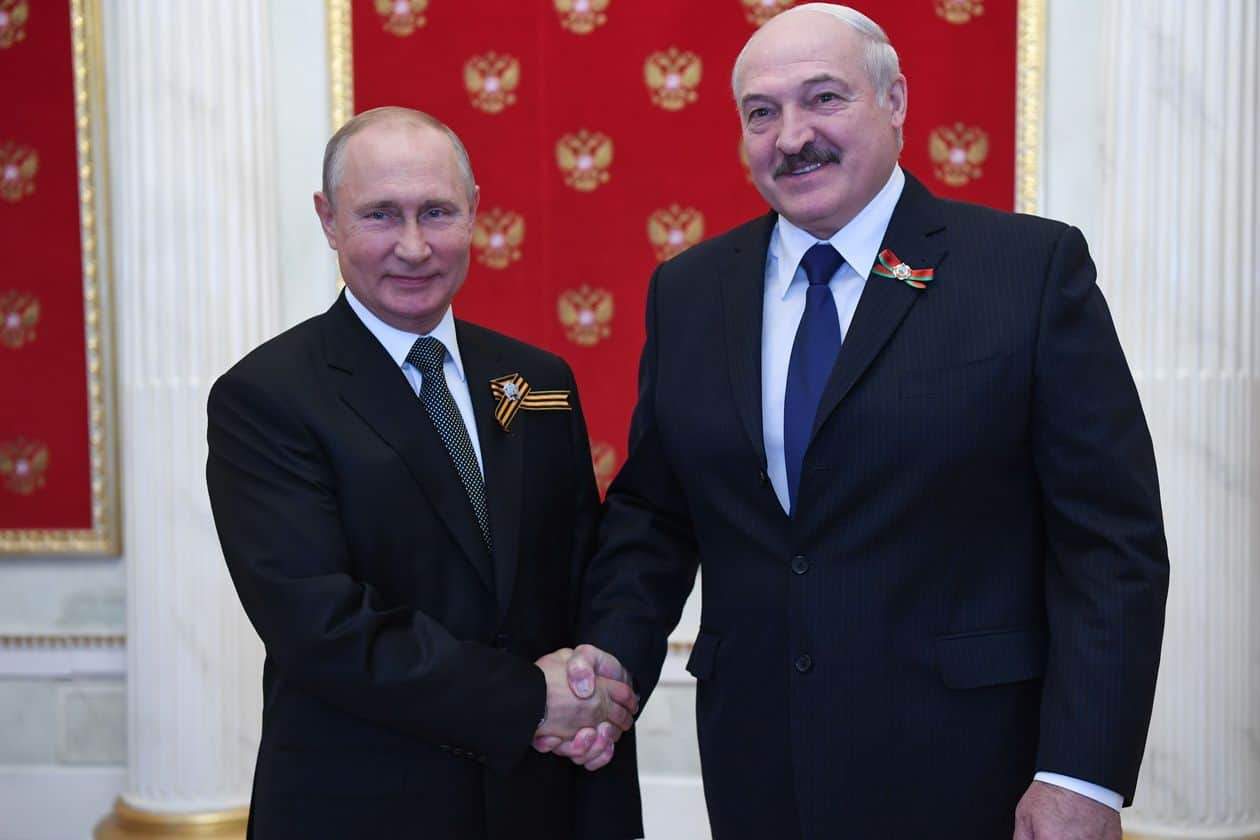With Belarus in Turmoil, Russia Sees Chance to Expand Its Influence

MOSCOW—As anger grew in Belarus over the handling of the weekend’s presidential election, Russia moved swiftly to congratulate President Alexander Lukashenko for his electoral win and press for stronger ties with its neighbor ahead of a second night of protests.
Russia and Belarus are closely linked by language and culture. Belarus once was a Soviet state and is strategically located in the center of Eastern Europe, on Russia’s western flank. In recent years, Mr. Lukashenko has sought a closer relationship with Europe and the U.S., annoying the Kremlin.
But now Russian President Vladimir Putin appears to detect an opportunity to re-establish its influence in Belarus by shoring up Mr. Lukashenko after an unprecedented wave of protests following Sunday’s vote. In his message to Belarus’s leader, Mr. Putin said he hoped the two countries would expand their integration, building on already strong economic and security ties.
“Putin’s calculus is that as Lukashenko faces a growing challenge from the Belarusian population…he has nowhere to turn other than Moscow,” said Dmitri Trenin, director of the Carnegie Moscow Center, a think tank. The U.S. so far appears to be on the sidelines. Some of Mr. Lukashenko’s own supporters might be willing to drop him after 26 years in power, Mr. Trenin said.
A preliminary count Monday awarded the veteran leader 80% of the vote, despite rising anger about his management of the struggling economy and a growing list of alleged human-rights violations. Tens of thousands of people poured into the streets of the capital, Minsk, and other cities, clashing with riot police, after exit polls projected a landslide win for Mr. Lukashenko.
Monday brought another day of demonstrations, with police again moving in to detain protesters in Minsk and at other cities nationwide. Footage uploaded to social media showed masked riot police chasing protesters with batons as they scrambled to get away. Other images showed police using tear gas, rubber bullets and stun grenades to disperse the growing crowds, while reports emerged of demonstrators building barricades.
Many protesters said the election results were incredulous, as did Mr. Lukashenko’s main opponent, Svetlana Tikhanovskaya. A 37-year-old first timer who stepped into the ring to unite the opposition after her husband, a popular YouTuber, was arrested for allegedly inciting unrest, she won just under 10% of the vote. He was one of three opposition candidates who were barred from contesting the vote. On Tuesday, Lithuania’s Foreign Minister Linas Linkevicius said she was there and was safe.
Ms. Tikhanovskaya couldn’t be reached for comment, but told reporters in Minsk on Monday that she is the legitimate winner of Sunday’s election and urged a peaceful transition of power. Ms. Tikhanovskaya and her campaign team couldn’t immediately be reached for comment, but local media reported she had filed a complaint with the country’s election commission demanding the results be invalidated and ballots be recounted.
Independent online pollsters had reported exit polls giving Ms. Tikhanovskaya up to 86% of the vote.
The Belarusian interior ministry reported that some 3,000 people were detained nationwide for participating in unauthorized protests, while 39 law-enforcement officers and more than 50 civilians were injured, the Belarusian state news agency Belta said. Interior ministry officials denied reports from human-rights activists that one person had been killed.
Mr. Lukashenko said Monday that authorities wouldn’t allow Belarus to be ripped apart by instability, Belta cited him as saying.
The dispute sets the stage for a confrontation between the two sides that could drive Mr. Lukashenko closer to Moscow, tilting the center of gravity in Eastern Europe further in Mr. Putin’s favor—at least if the Belarusian leader survives.
The widening crackdown already is driving a wedge between the Belarusian president and the U.S. and Europe, which had been trying to build a closer relationship with Minsk to balance Russia’s growing influence in the region. The European Union condemned the actions of riot police, with European Commission President Ursula von der Leyen separately saying such violence had no place in Europe.
The U.S. urged the Belarus government to refrain from the use of force. “Severe restrictions on ballot access for candidates, prohibition of local independent observers and polling stations, intimidation of opposition candidates and then detention of peaceful protesters and journalists have marred the process, and we urge the Belarusian government to respect the right to peaceably assemble and to refrain from the use of force,” White House press secretary Kayleigh McEnamy said at a briefing.
In a joint statement, Polish President Andrzej Duda and his Lithuanian counterpart, Gitanas Nauseda, called on Belarusian authorities to uphold basic democratic standards.
NATO Secretary-General Jens Stoltenberg said Belarus must protect fundamental rights, including freedom of speech and the right to peaceful protest.
“Lukashenko will be a much weaker figure even if he remains president,” said Daragh McDowell, head of Europe and principal Russia analyst at U.K.-based Verisk Maplecroft, a research firm specializing in global risk. “Without a support base in society his regime will become entirely dependent on a heavy, militarized police presence that will isolate Belarus from the rest of Europe and deepen its dependence on Moscow.”
If Mr. Lukashenko were to fall, political analysts said Russia would be eager to see a compliant partner installed in Minsk.
“Belarus is too important for Russia to give it up,” Mr. Trenin said. “Thus, Belarus as a tug of war between Russia and the West seems the likely future for that country.”
Photo: Russian President Vladimir Putin met with Belarus President Alexander Lukashenko in June, ahead of the election. - PHOTO: ALEXEY NIKOLSKY/KREMLIN/EPA/SHUTTERSTOCK




